#jacob is sherlock
Explore tagged Tumblr posts
Text
HPHM Character Headcanons for my Orwell Chess story
I just made MC and Jacob the Holmes family b/c let's be honest Sherlock would 10/10 go missing in his pursuit for the Cursed Vaults.
Mycroft Holmes
certified eldest, eldest. he acc attended during the Marauders Era where he was a prefect of the Slytherin House when Snape and Lucia entered
brilliant wizen, but his professors somehow never caught on to his lazy attitude. the one student who doesn't study but gets perfect grades.
but he's in Slytherin for a reason. his ambition is to live the laziest life he can but with every privilege. acts as a sort of foil to Vincent Phantomhive, who's in the same year.
he became the unofficial parent to Lucia Moriarty with Francis Phantomhive b/c he'd be damned if the most interesting gossip went missing.
he's a natural occlumens somehow. Lucia suspects it has something to do with his super high intelligence as one needs to be able to navigate their victim's memories well to be a good legilimens.
Sherlock Holmes
he's reckless (as Jacob is within the game), but he's not careless/arrogant. every plan for the Cursed Vaults was made meticulously with his brilliance
he too is a genius like his brother and family. a natural inclination for Potions and Charms. but he's not skilled in the Mental Arts. In fact, he became good at deductions b/c he lacks in Legilimency.
has several journals that detail how to create spells like him, but no one ever really reads them b/c they're so dense. the only ever person who read them was William Moriarty (Lucia's younger brother) & he's the only person to do so
the only Ravenclaw within his siblings. he doesn't care for position or fame—he wants to know magic. it's the reason why he gets along with Lucia so much. she created magic from ancient runes and practically gave him a whole new project.
best friend is still John Watson, a fellow Gryffindor, and Molly Hooper, one yr younger Hufflepuff. They're one of the only inter-house friendship at the time surprisingly.
Violet "Viola" Holmes
the MC of HPHM & Slytherin (despite knowing that we're supposed to follow in our older brother's house).
the most magically gifted within the family, but the least intelligent (which means nothing b/c Sherlock and Mycroft is not the norm). but her brothers didn't really care about that. in fact, they were more interested in magic.
she actually resembles Sherlock more than Mycroft, which she proceeds to deny every single time like siblings do. the resemblance gets worse when she puts her hair into a ponytail like he did
her magical education was stunted b/c of Sherlock's disappearance & her parents stopped encouraging magical experiments and such, which is why she's not as up-to-date at Hogwarts.
She's actually closer in age with the Phantomhive twins as they're four years apart. she became a mentor/older sister to them (they're legally related to each other b/c Lucia was adopted into the Phantomhive family and her brothers was 'married' into the Holmes family—quite complicated).
#hphm#hphm oc#viola holmes#viola is jacob's sibling#jacob is sherlock#bbc sherlock#yuukuko no moriarty#acd holmes#kind of?#I wanna give the holmes the proper justice from acd#harry potter#sherlock holmes#mycroft holmes#orwell chess
10 notes
·
View notes
Text




The day i stop obsessing over non canon silly gay ships is the day the universe swallows itself whole. That day is not today.
#i love my silly homos#tell me its just heterosexual male friendship and ill bite you#merthur#bbc merlin#bbc sherlock#johnlock#hannibal nbc#hannigram#saltburn#cattonquick#barry keoghan#oliver quick#felix catton#jacob elordi#sherlock holmes#john watson#merlin emrys#arthur pendragon#will graham#hannibal lecter#lgbtqia
277 notes
·
View notes
Text
just so you guys know, jack and davey in an alternate universe are megamind and roxanne,
todd and neil in an alternate universe are gingerbrave and strawberry cookie
thank you for coming to my ted talk
#i couldn’t find any duos that have the same mbti as nick and gatsby#nick is john watson from sherlock#gatsby has the same mbti as davey#but for variety - gatsby is batman#the great gatsby#newsies#javid#javey#dead poets society#anderperry#neil perry#todd anderson#jack kelly#david jacobs#davey jacobs#nick carraway#jay gatsby#live laugh mbti
25 notes
·
View notes
Text
Jacob meets Sherlock Holmes
S: Sir Frye this outfit is quite ridicolous


#assassin's creed#assassin's creed syndicate#ac syndicate#jacob frye#ac jacob#the frye twins#sherlock holmes#bbc sherlock#sherlock holmes the abominable bride#bbc#ubisoft#victorian era#benedict cumberbatch
29 notes
·
View notes
Text
I literally don't have the patience to watch a show where there's no gay kissing ! Thinking about all the shows I used to watch where they'd convince you that there'd eventually be gay kissing but then never delivered on the gay kissing front.
#yeah im talking about you#bbc sherlock#it actually was just#queerbaiting#and I'm properly fed up with it by now#everyone should just be watching#interview with the vampire#at this point because there's so much#gay kissing#in that show its actually very lovely#iwtv#loustat#devils minion#sam reid#jacob anderson#lestat#lestat de lioncourt#louis de pointe du lac#armand#daniel molloy#iwtv post#iwtv posting#me talking
53 notes
·
View notes
Text
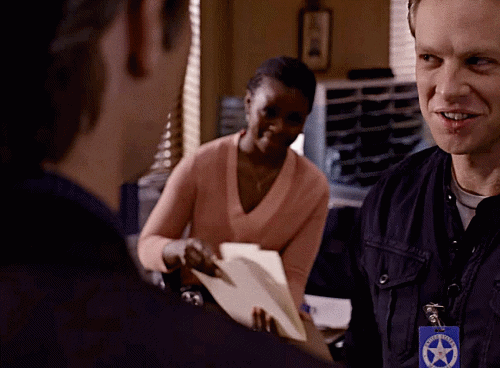

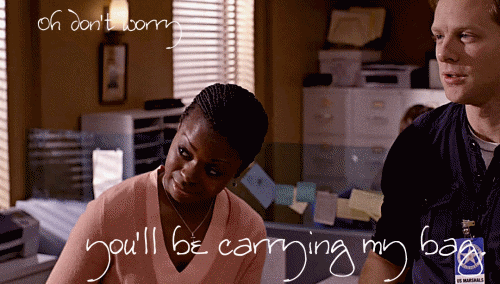
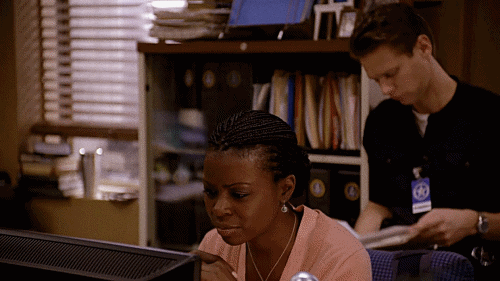
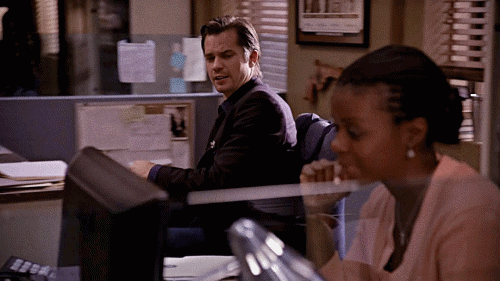
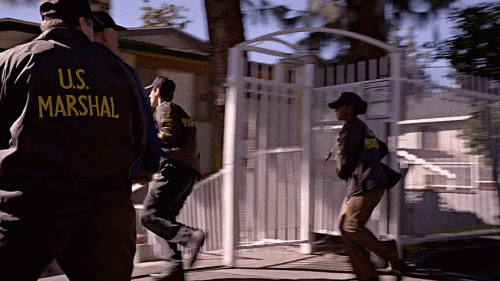

#erica tazel#jacob pitts#timothy olyphant#justified fx#she's the best marshal i've got (the series)#01 03 fixer#tim and rachel snerking at the other giving raylan shit#partners!#dialogue posts#no shirt sherlock
71 notes
·
View notes
Text
do we think davey would fw sherlock holmes (im projecting)
12 notes
·
View notes
Text
rotating the concept of jacob anderson as elementary!sherlock in my head
7 notes
·
View notes
Text
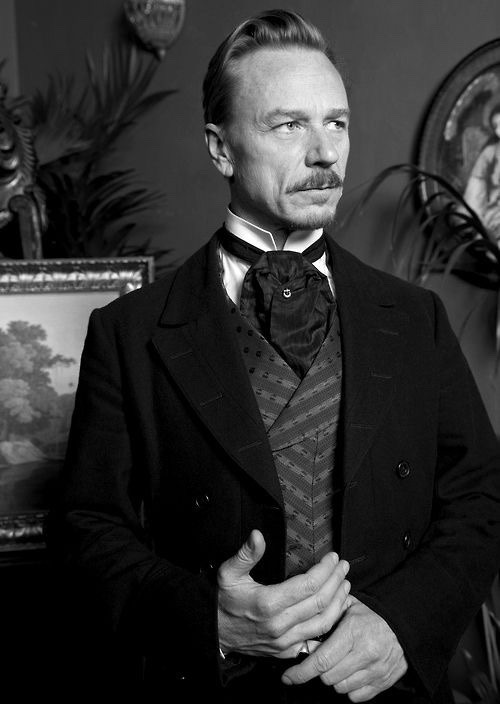
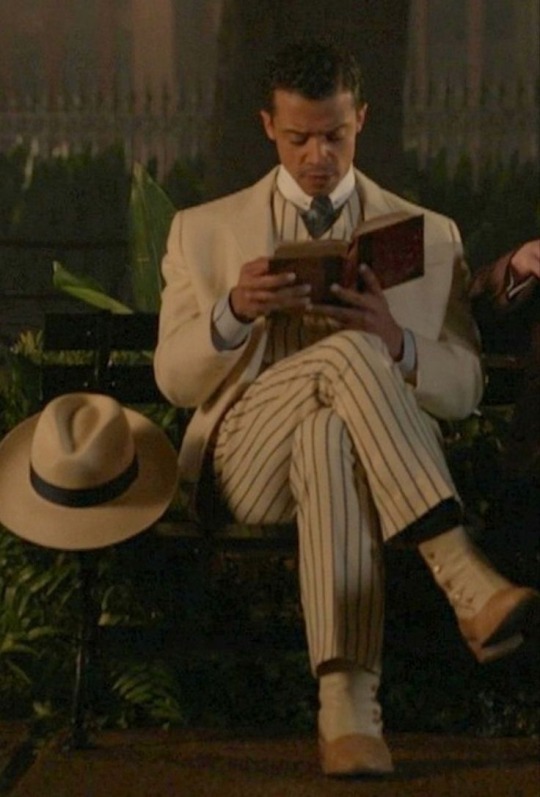
they should be the sherlock and watson in a big-deal adaptation that are finally explicitly textually visually gay with each other do you see the vision
#ben daniels#jacob anderson#do you see the vision#i would hear an argument for a combo of them being either character#but my first thought was ben daniels as sherlock#update i literally forgot ben daniels is gonna be in the new season of iwtv when i posted this in a frenzy#shame on me bc i’m obsessed w him but do you SEE the vision#they’re being drawn together
28 notes
·
View notes
Text
Something about watching Sherlock back in the days to just get queerbaited to watching Hannibal expecting to get queerbaited (and instead finding out the opposite is the case) to seeing Interview With The Vampire knowing beforehand Lestat and Louis will be as explicitly gay as possible which is just so fulfilling.
We’ve come a long way and I really love that (I do wish that we had more wlw though).
#interview with the vampire#lestat de lioncourt#louis de pointe du lac#claudia#vampire chronicles#anne rice#the vampire lestat#brad pitt#iwtv#armand#nbc hannibal#hannibal lecter#hugh dancy#sherlock#bbc sherlock#john watson#sherlock holmes#jacob anderson#sam reid
59 notes
·
View notes
Text
youtube
I love them, your honour
#Jacob and Julia#Drawfee#Secret Sleepover Society#there are so many good compilations for them but this one is dear to my heart bc of the sherlock (date in retrospect) stream
12 notes
·
View notes
Text
Little rant session sometimes i wonder what its like for people who can enjoy things a normal amount yk. like wdym you saw saltburn and just went on with your life?? you didnt research the actors and obsess over one and watched their entire filmography and made that saltburn your entire personality? like there are shows years later i still think about and have a mini obsession over them again from time to time. Like im over here still thinking about merlin and sherlock and hannibal even tho i havent seen those shows in years. idk its a weird concept to me that things affect people differently
124 notes
·
View notes
Text

dear fellow Teenage Wastelanders™️ —
i talk to myself publicly HERE from time to time if you ever wanna hang :)
#Jonas brothers#high school musical#twilight#twilight saga#edward cullen#jacob black#team edward#team jacob#justin bieber#star wars#Jesse McCartney#charlie’s angels#im5#doctor who#supernatural#the vampire diaries#Paramore#Sherlock#sherlock fandom#maximum ride#hunger games#henry cavill#bill skarsgård#anakin skywalker#avatar: the last airbender#the legend of korra#johnny nct 127#nct 127#green day#linkin park
3 notes
·
View notes
Text
jack: i said don't get clever.
davey, crossing his arms: i can't just turn it on and off like a tap.
30 notes
·
View notes
Text
S: Mr Frye you look quite good
J: Thank you Mr.Holmes
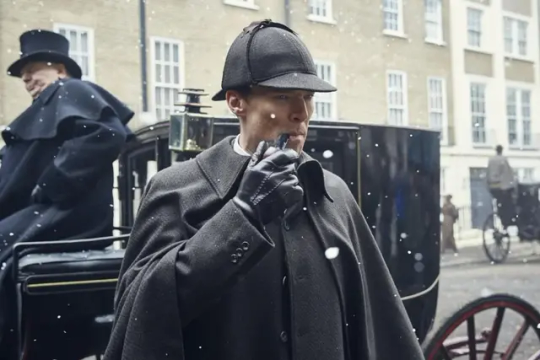

This outfit has the unique benefit of increasing Eagle Vision range by 20%.🕵️♂️
#bbc sherlock#sherlock holmes the abominable bride#jacob frye#assassin's creed syndicate#ac syndicate
93 notes
·
View notes
Text
The year is 2025, and here I am, still very troubled about BBC Sherlock. Now, it's been a while since I wrote any Sherlock meta, but there's something that's been bugging me, and I’d love to get people’s input and thoughts.
I'm a screenwriter—not a professional one, but an autodidact. I haven’t had anything produced, but I have written several original screenplays. One of the most basic things you learn as a writer in general, and especially in screenwriting, is the concept of the character arc. It’s the art of starting a character off as one thing, taking them through a process of deconstruction or challenge, and letting them emerge as something different.
An exercise I enjoy is watching films or TV shows and analysing a character’s arc. I try to spot hints of how a character will change by the end of an episode, a season, or the entire series. That’s part of why I particularly love Michael Schur’s shows—Parks and Recreation, The Office, Brooklyn Nine-Nine. In the Michael Schur universe, character arcs are blatantly laid out for you in the pilot episode. There’s absolutely no need to philosophize or guess: the characters often state it themselves, or it’s clearly expressed through others.
Take, for example, Michael Scott.

In the Office pilot, he’s genuinely a terrible boss and a trashcan of a person. But we’re immediately shown his arc via one simple prop: a coffee mug. “World’s Best Boss.” That’s his journey—to become that boss, if not in the world, then at least in Dunder Mifflin.
Or take Jake Peralta. In B99’s pilot, Terry introduces the squad to Captain Holt with:
“Jacob Peralta is my best detective — he likes putting away bad guys, and he loves solving puzzles. The only puzzle he hasn’t solved… is how to grow up.”
From that alone, you know where Jake is headed. By the end of the show, he’ll still be the squad’s best detective, but he’ll also be a grown-up: a dad, a partner, someone who takes his job seriously and earns the respect of his captain.
In the Parks and Rec original pilot script, Leslie outright declares that she’ll be America’s first female president. In the aired pilot, the message is softened a bit when Leslie says:
“You know, government isn’t just a boy’s club anymore. Women are everywhere. It’s a great time to be a woman in politics. Hillary Clinton, Sarah Palin, me.”
There it is: Leslie’s arc will involve her rising through the boys’ club of American politics and becoming a truly great public servant (and maybe—even if it’s never clearly stated—the first female president).
So now that I’ve set the scene a bit—understanding how a character arc is seeded in a pilot—let’s talk about Sherlock.
What are we told about John and Sherlock in the pilot that sets up their character arcs?
Let’s start with Sherlock, because that one is spoon-fed to the audience—by none other than Lestrade. In response to John’s question, “Why do you put up with him?”, Lestrade says:
“Because Sherlock Holmes is a great man. And I think, one day, if we’re very, very lucky, he might even be a good one.”
That’s it. That’s Sherlock’s arc. The writers are telling us outright: here’s a brilliant but emotionally disconnected man. And the journey ahead of him isn’t about intellect, but about goodness. About connection, humanity, compassion. Becoming not just great, but good. And, if I might add a bit of Johnlock, not just to anyone—but through John, with John, and ultimately because of John.
Now, John’s arc is a little less obvious in my opinion, though just as important—and it’s given to us by Mycroft, who says:
“You’re not haunted by the war, Dr. Watson—you miss it.”
To me, this says: here is a traumatized soldier who never fully came back from war. He’s unmoored, disconnected, half-alive. "Nothing ever happens to me." And the arc we should expect? A man who, over time, things happen to him and he finds peace. Who finds meaning in his civilian life—back in London, in friendship, in purpose, in (perhaps) love. Who, by the end of the series, no longer misses the war.
That’s the setup. That’s what we were promised. Or at the very least, that's what I feel I was promised.
Only… whatever I feel was promised never actually happened.
In fact, Sherlock ends up delivering the complete opposite. In Seasons 3 and 4, the show leans into Sherlock as a mythic, near-supernatural figure—the “adult who never was a child.” This directly contradicts the idea of humanising him. The sudden introduction of Eurus shifts the focus from internal growth to external spectacle. His evolution becomes a reaction to trauma, not a conscious transformation toward goodness.
By the end of The Lying Detective, Sherlock is still fundamentally isolated and emotionally unavailable. Despite supposedly learning to “connect,” he doesn’t share emotionally in any meaningful way—not with John, not with Eurus, not with Molly. The “I love you” scene is a puzzle to be solved, not a moment of genuine vulnerability. John and Sherlock’s confrontation at the end of TLD achieves absolutely nothing in terms of their openness or intimacy.
Sherlock's arc—of becoming a good man—is never achieved. Now, we can argue about that, because Sherlock is a softie at times. He is kind. And don’t get me wrong—when Michael Scott leaves Dunder Mifflin, he’s by no means a perfect boss. But he’s loved by Pam, he’s missed by Jim, and the Dunder Mifflin team has learned to respect him in their own way.
I know some of you are itching to shout that Sherlock's arc won't be complete without S5 and in theory, I agree! But! Lest we forget, Lestrade’s “prophecy” (supposedly) comes full circle in The Final Problem:
"No, he’s better than that. He’s a good one."
This, supposedly, is the great moment of The Payoff. Here stands Sherlock, A Good Man™.
Which… always makes me scratch my head.
Is he, Lestrade? Really? What is it, exactly, in those last few days that convinces you of that? What moment between The Six Thatchers and The Final Problem gives you that impression?
Nothing. Really—nothing. This, for me, is absolutely zero character arc payoff.
Now, what about John—who was supposed to come back from the war, or at most, get his adrenaline kicks chasing criminals with Sherlock through the streets of London?
Mary’s death completely hijacks John's growth as a character. Rather than showing John finding stability in his marriage and family (or with Sherlock, in whatever shape that takes), the show strips it all away. And worse, it distances him from Sherlock once more—throwing him into another spiral of guilt and rage, effectively rebooting his trauma rather than resolving it.
The finale gives John no closure. We don’t know where John is emotionally by the end of The Final Problem. Is he at peace? Are we supposed to believe that a happy montage fixes everything? Does he still crave danger? Does he still feel violent impulses toward Sherlock?
I can’t even begin to think when or how Mycroft’s seed of John’s arc—“you miss the war”—comes full circle in The Final Problem. Unlike Lestrade’s line about Sherlock, there’s nothing that brings that theme to any kind of resolution. It’s as though Moftiss forgot to give John a conclusion altogether.
I’ve sometimes wondered if Sherlock’s words to John in TLD—“We might all just be human”—were meant to gesture at John’s arc. But… why would it?
John never struggled to understand that he was human. That wasn’t his arc. That wasn’t his flaw. He knew he was human and he always craved for that humanity from Sherlock. So what, then, was that line supposed to resolve?
I can play devil's advocate here. Character arcs can be negative. A character doesn't always have to have a happy ending, and had Moftiss boldly done that, I would have appreciated it. But they hadn't- they give us a weird ass montage with John and Sherlock happily giggling at Rosie. It's just feels like there's absolutely no conclusion for John, whether negative or positive.
Adding insult to injury, Mary’s 'speech' during the final montage is actually dismissive of their "growth":
“There are two men sitting arguing in a scruffy flat. Like they’ve always been there, and always will.”
Which completely negates the idea that they’ve changed. At that point, they’re not like they’ve always been. John's quite possibly worse than when we met him.
“The best and wisest men I have ever known.”
Again—what’s with the John erasure? Let’s say, for the sake of argument, Sherlock is better now—what makes him wise? And John’s arc was never about becoming wise, so what does that even mean?
“My Baker Street boys.”
Are they? Are they still the Baker Street boys (I hate that nickname)? We’re never told if John and Rosie move back in. In fact, in a Q&A Moftiss declare John does not return to Baker Street.
And that’s just it, isn’t it?
The Final Problem finale doesn’t fail because it was mysterious or ambiguous or hilariously bad or tragic. It fails because it abandons the emotional contract it made with its viewers in the very first episode. It forgets the arcs it promised, the healing it hinted at, the people these characters were meant to become.
We didn't need a happy ending. But we did need a real one.
#my meta#bbc sherlock#sherlock meta#sherlock holmes#john watson#johnlock#moftiss criticism#sherlock season 4#the final problem#sherlock the lying detective#sherlock analysis
533 notes
·
View notes